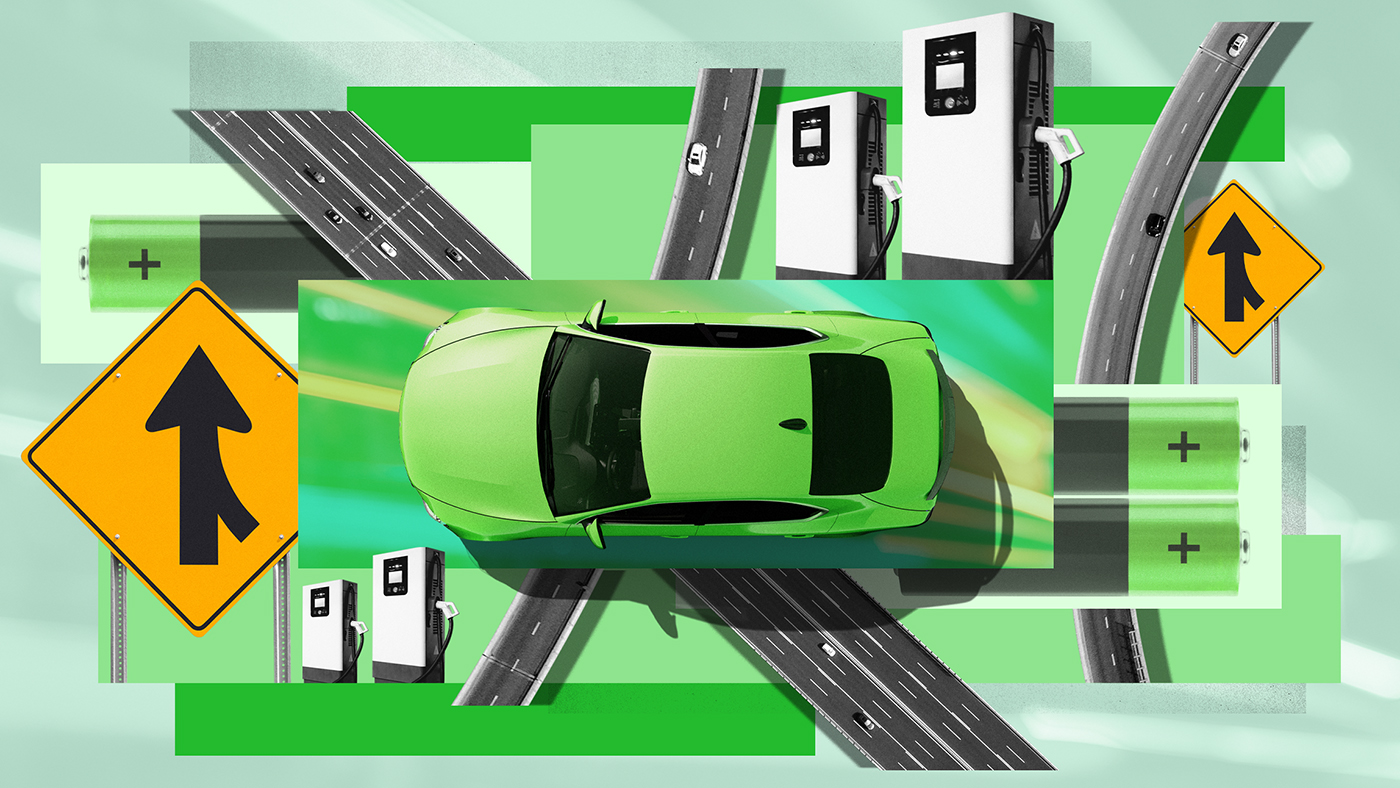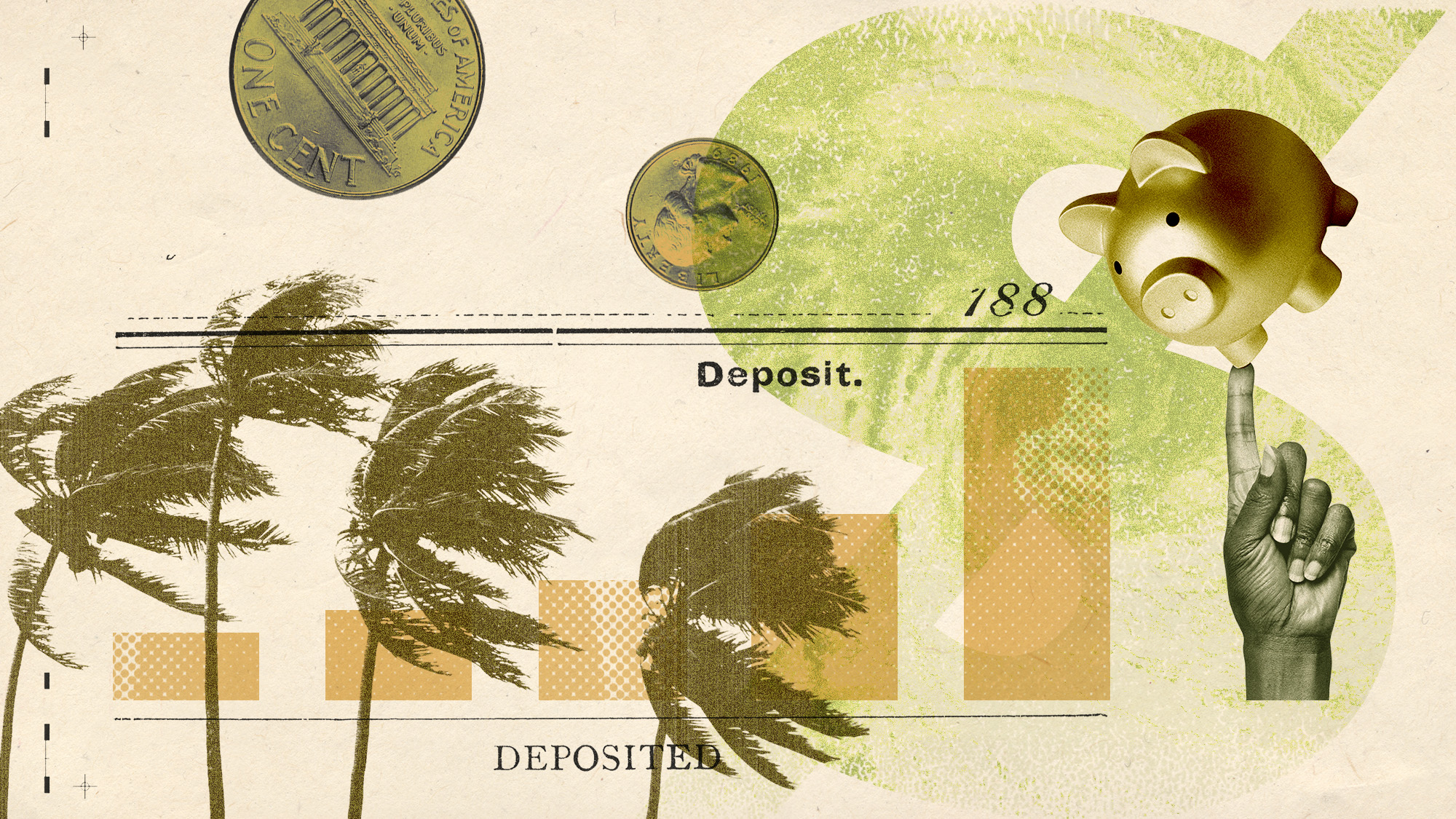Will Biden's big EV push work?
The electric-vehicle transition is coming. America isn't ready.


A free daily email with the biggest news stories of the day – and the best features from TheWeek.com
You are now subscribed
Your newsletter sign-up was successful
Is America ready for the transition to electric vehicles? Maybe not quite yet. Just four in 10 Americans want to make the switch, The Associated Press reports, "with high prices and too few charging stations the main deterrents." Just 8 percent of American adults say they live in a household with an electric vehicle, and another 8 percent own plug-in hybrids. The shift away from gas-powered cars "has a long way to travel."
The journey may get shorter. The Biden administration this week is unveiling new auto pollution standards that could lead to EVs making up two-thirds of auto sales in the next decade, Politico reports. But automakers are nervous about acquiring the minerals and other materials needed to build that many electric vehicles. "This requires a massive, 100-year change to the U.S. industrial base and the way Americans drive," says the Alliance for Automotive Innovation.
"Meeting the new timetable will be a challenge," The New York Times reports. While car companies think the transition to EVs is "inevitable," the change will require huge shifts in infrastructure and supply chains. (Finding enough lithium to make all those batteries is a big challenge.) One other consideration: "Whether Americans are willing to accept changes to their work and lifestyle to drive electric vehicles is only one of several hurdles and uncertainties."
The Week
Escape your echo chamber. Get the facts behind the news, plus analysis from multiple perspectives.

Sign up for The Week's Free Newsletters
From our morning news briefing to a weekly Good News Newsletter, get the best of The Week delivered directly to your inbox.
From our morning news briefing to a weekly Good News Newsletter, get the best of The Week delivered directly to your inbox.
What are commentators saying?
"The climate crisis doesn't care whether the auto market is ready or not," Andrew J. Hawkins writes at The Verge. Cars and trucks are a "major source of carbon emissions" that cause climate change, which is why the White House is pushing hard to transition to electric vehicles as fast as possible. It's no surprise that carmakers are warning of the challenges ahead: "Private interests rarely get excited about new regulations." But the challenges are real. "The effort to make this a reality will be absolutely massive."
There will be stumbles along the way. The administration's new policies aren't always matching up to the reality on the ground, opines the Los Angeles Times editorial board. The Inflation Reduction Act contained "generous electric vehicle subsidies" when it passed last year, but right now only a "handful" of U.S.-produced EVs are eligible for the $7,500 tax credits. (Foreign-made cars aren't eligible.) "Car buyers should be given unequivocal and simple incentives to go electric, but instead they'll encounter confusion and uncertainty."
The Washington Examiner's James Rogan, meanwhile, writes that the new pollution rules are essentially a "move to ban internal combustion engines." That's the kind of massive shift to the American economy that should go through Congress, not the president. But no matter who is driving the change, forcing a shift to EVs is a bad idea, for a number of reasons. Banning gas-powered cars "would impose a heavy burden on American households, especially lower-income households." And even if they can afford electric vehicles, it's not clear Americans want them. "Americans like big gasoline-powered vehicles."
What's next?
Some of the infrastructure solutions are already slipping into place. Autoweek reports that Walmart has announced it will install thousands of car-charging stations at its Walmart and Sam's Club stores. The effort aims to provide "coast-to-coast coverage" — including in rural areas — complete with nearby food and rest amenities while cars power up. That might boost charging options considerably: The company says it has stores located "within 10 miles of approximately 90 percent of Americans."
A free daily email with the biggest news stories of the day – and the best features from TheWeek.com
There is work to ramp up under-the-hood production as well. The Detroit Free Press reports that General Motors is investing $50 million in a U.S.-based lithium supply company that will provide the raw materials for all the new batters those new EVs will need. (Ford previously announced it is investing in an Indonesian nickel mine for similar reasons.) And they'll be needed: "GM plans to bring seven new EVs to market in the next 18 months and targets 2035 to be all-electric."
And it's possible that consumers will find their way to EVs even without a push from the government. Reason points out that electric car prices are already falling — with or without the aid of tax credits to entice buyers. In the long run, EVs are easier to mass produce "because they use fewer parts than cars with internal combustion engines," and carmakers are figuring out cheaper production methods all the time. The journey to the EV future is only going to accelerate.
Joel Mathis is a writer with 30 years of newspaper and online journalism experience. His work also regularly appears in National Geographic and The Kansas City Star. His awards include best online commentary at the Online News Association and (twice) at the City and Regional Magazine Association.
-
 Quentin Deranque: a student’s death energizes the French far right
Quentin Deranque: a student’s death energizes the French far rightIN THE SPOTLIGHT Reactions to the violent killing of an ultra-conservative activist offer a glimpse at the culture wars roiling France ahead of next year’s elections.
-
 Secured vs. unsecured loans: how do they differ and which is better?
Secured vs. unsecured loans: how do they differ and which is better?the explainer They are distinguished by the level of risk and the inclusion of collateral
-
 ‘States that set ambitious climate targets are already feeling the tension’
‘States that set ambitious climate targets are already feeling the tension’Instant Opinion Opinion, comment and editorials of the day
-
 Why the catastrophe bond market is growing
Why the catastrophe bond market is growingThe Explainer The bonds pay for climate change disaster damages
-
 Why are home insurance prices going up?
Why are home insurance prices going up?Today's Big Question Climate-driven weather events are raising insurers' costs
-
 Christmas trees: losing their magic?
Christmas trees: losing their magic?In the Spotlight Festive firs are a yuletide staple but are their days numbered?
-
 The ocean's blue economy is growing. Can the tide continue to rise?
The ocean's blue economy is growing. Can the tide continue to rise?The Explainer The big blue is bringing in the green
-
 Ports reopen after dockworkers halt strike
Ports reopen after dockworkers halt strikeSpeed Read The 36 ports that closed this week, from Maine to Texas, will start reopening today
-
 Would Trump's tariff proposals lift the US economy or break it?
Would Trump's tariff proposals lift the US economy or break it?Talking Points Economists say fees would raise prices for American families
-
 Will college Gaza protests tip the US election?
Will college Gaza protests tip the US election?Talking Points Gaza protests on U.S. campuses pose problems for Biden like the ones that hurt Lyndon B. Johnson in the '60s
-
 Can Trump get a fair trial?
Can Trump get a fair trial?Talking Points Donald Trump says he can't get a fair trial in heavily Democratic Manhattan as his hush money case starts
